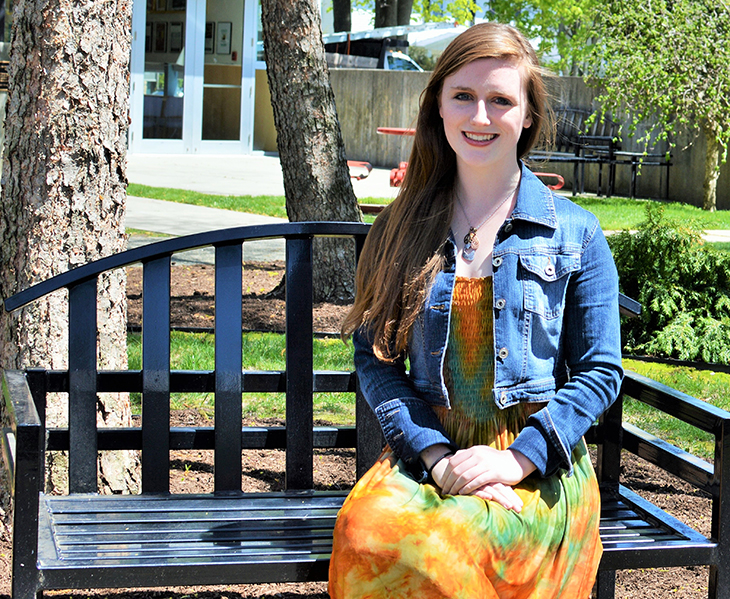Krissy Truesdale ’15

As a day student at Exeter, Truesdale was an active member of the Environmental Action Committee. During one meeting, a student from Arizona, Calais Larson ’13, remarked that her state ought to be doing more to encourage renewable energy. Truesdale agreed, then made an offhand comment about how she wished New England could make use of solar panels. Larson asked “Why doesn’t it?” The meeting attendees drew a blank. Truesdale and Larson did some research and discovered the potential.
Fast-forward a couple of years. Truesdale is now a sophomore at Clark University in Worcester, Massachusetts, majoring in global environmental studies and minoring in innovation and entrepreneurship, management, and East Asian studies. She also runs Solar for Our Superheroes (S4OS), a nonprofit that she incorporated in 2014, during her upper year at Exeter; the organization was given tax-exempt status as a 501(c)(3) in the fall of 2015.
When Truesdale conceived of Solar for Our Superheroes, she envisioned a two-pronged effort focused on social justice and environmentalism. The organization’s mission was to thank local leaders for their service by providing sustainable energy in the form of solar panels for their homes.
On the S4OS Facebook page, Truesdale writes about the source of her inspiration: her grandfather, who was a firefighter in Peabody, Massachusetts. She recalls how he was a “hero to the many neighbors he went out of his way to serve in his everyday actions, big and small.” In his memory, she became committed to thanking community-nominated heroes. Marrying that interest with her commitment to environmentalism, she developed S4OS. The organization is launching its pilot project to thank a nurse in Marblehead, Massachusetts.
Converting a home to solar energy costs tens of thousands of dollars. As a busy college student, Truesdale knew she needed help to achieve her mission. She solicited funds through pitch competitions, grants, Indiegogo, corporate donations — wherever she might find sources of funding as committed to renewable energy as she was. She entered a partnership with the Boston Solar Company, which agreed to donate the time and labor for solar panel installation. Solar for Our Superheroes was chosen to participate in StartUp Worcester; the award money led to office space and access to mentors and other entrepreneurs. Truesdale also found a way to engage college peers who shared her passion by setting up internships.
Despite all of these efforts, Truesdale found it difficult to build a replicable model for providing solar panels for free to members of her community by funding each one individually. But she also discovered that the government and other nonprofits offer myriad types of support for those who want to convert to solar. Time for a pivot: She identified federal government loan programs, local rebate programs, and funds earmarked for renewable energy for low-income and middle-class people — many types of incentives, provided by all levels of government, other non-profits, foundations, and by solar power companies.
Truesdale says, “Lots of people don’t know about the programs or they don’t know how to apply — it’s really confusing!” She recognized that Solar for Our Superheroes could have an impact by connecting people with funding and access that was already available.
While the initial model for her business has changed, Truesdale doesn’t regret its evolution. “We want all people, when they think solar, to think of Solar for Our Superheroes,” she says. “It used to be that we looked for veterans, teachers, firefighters — those who served as role models in their community. Now we are there for anyone.” As Truesdale notes, “Renewable energy is a dynamic industry, and you have to stay flexible!”
— Lynn Horowitch ’81; P ’19
This article first appeared in the fall 2016 issue of The Exeter Bulletin.
Photo republished with permission from Worcester Sun.